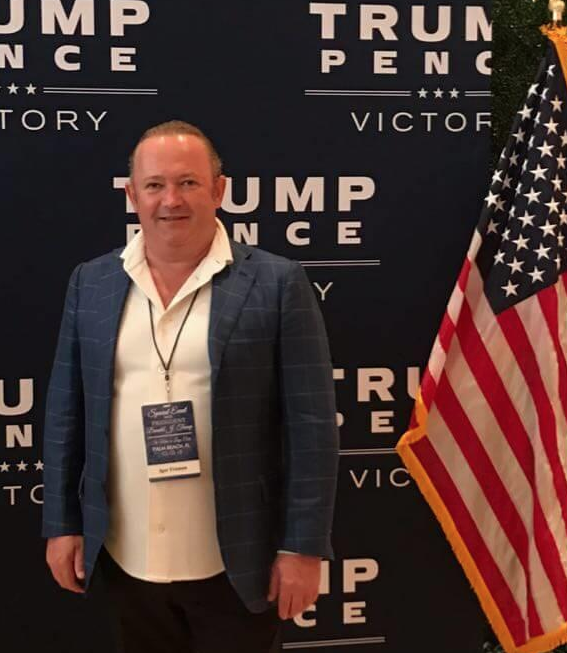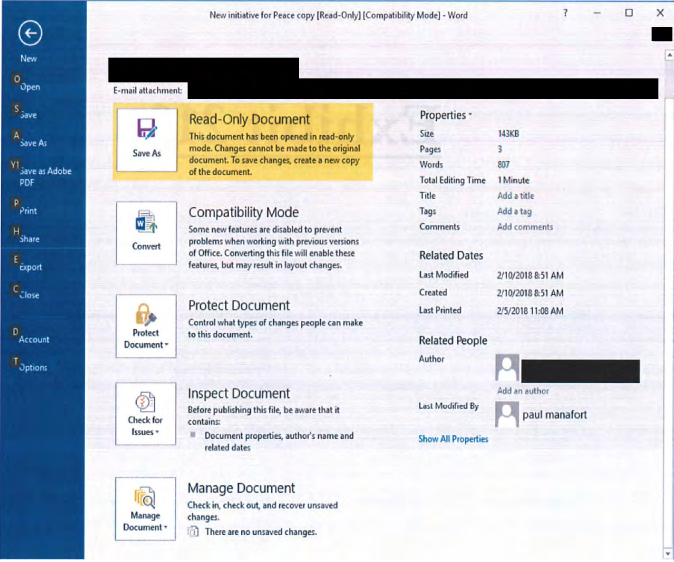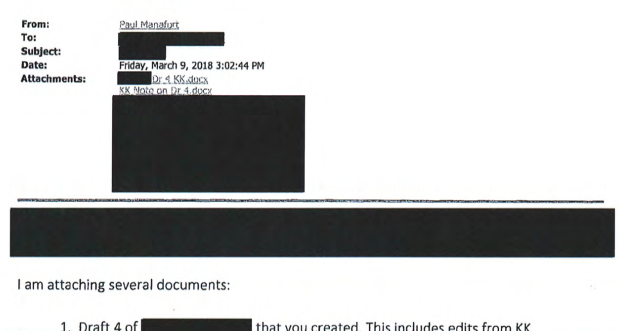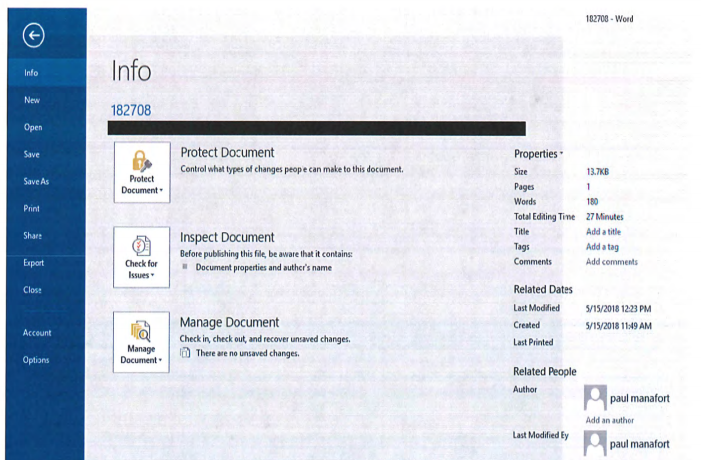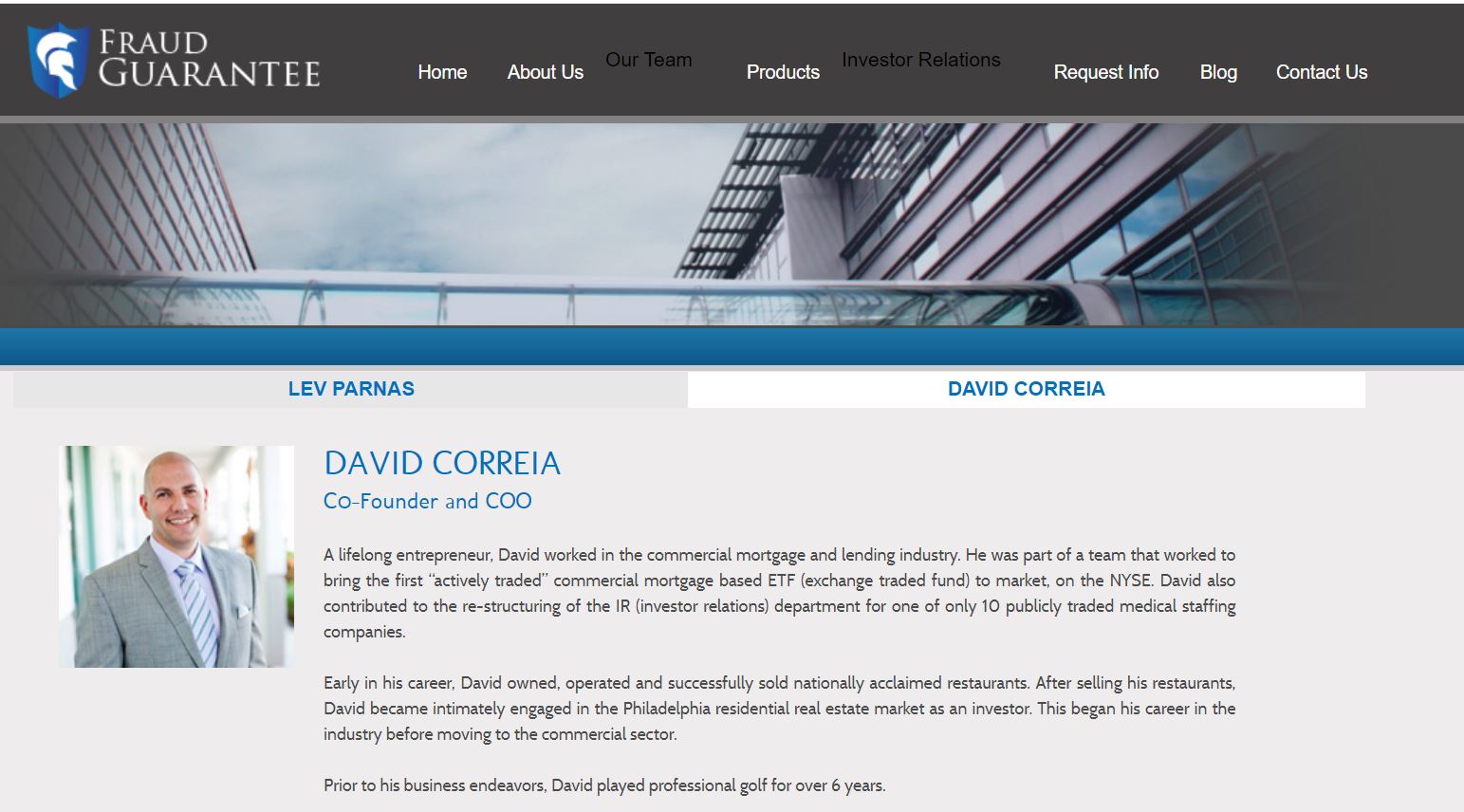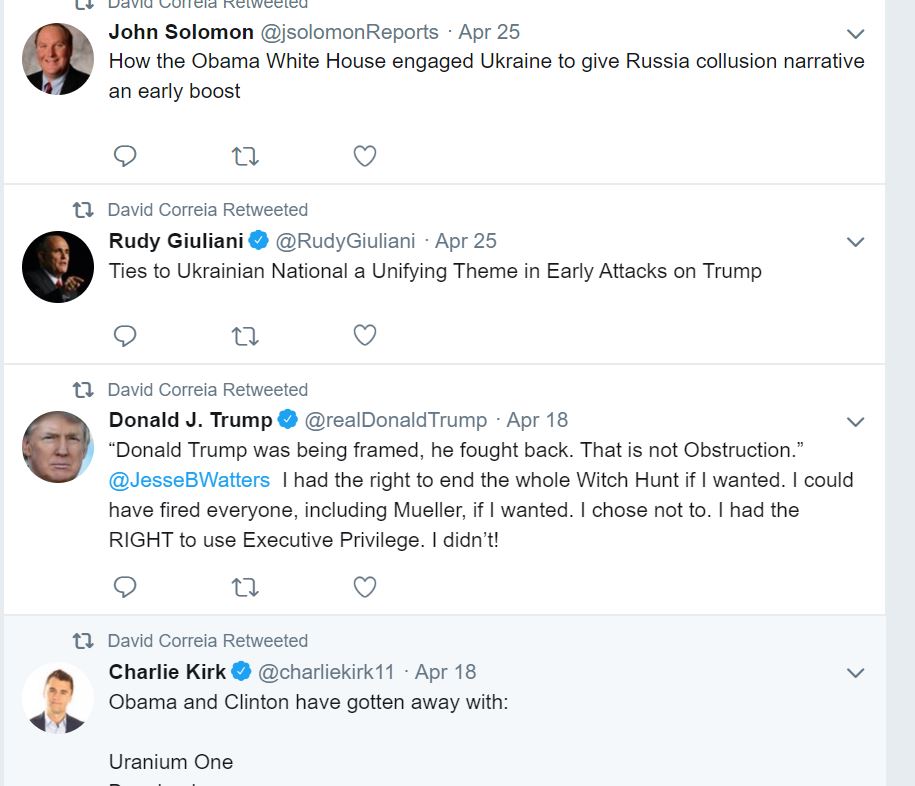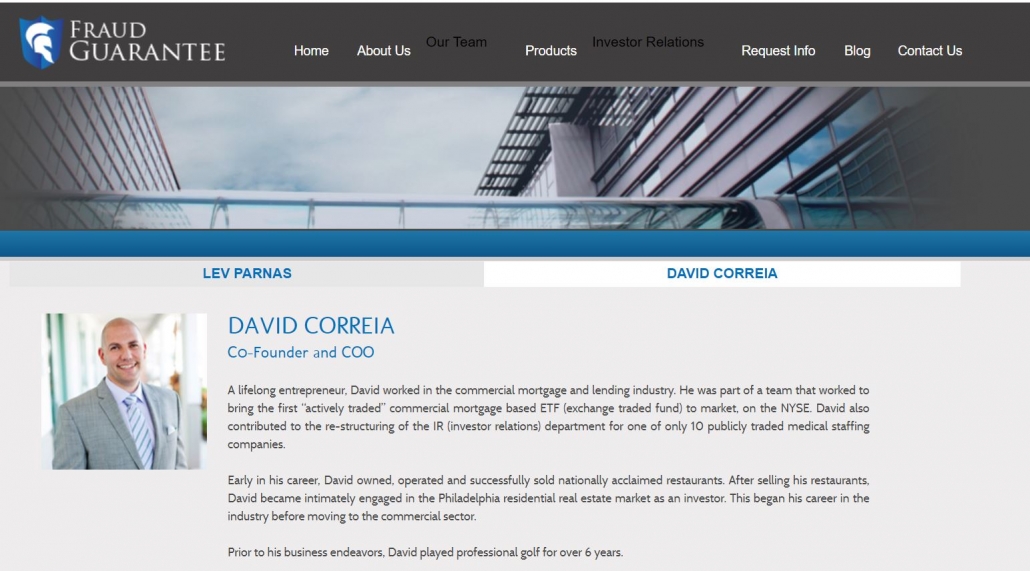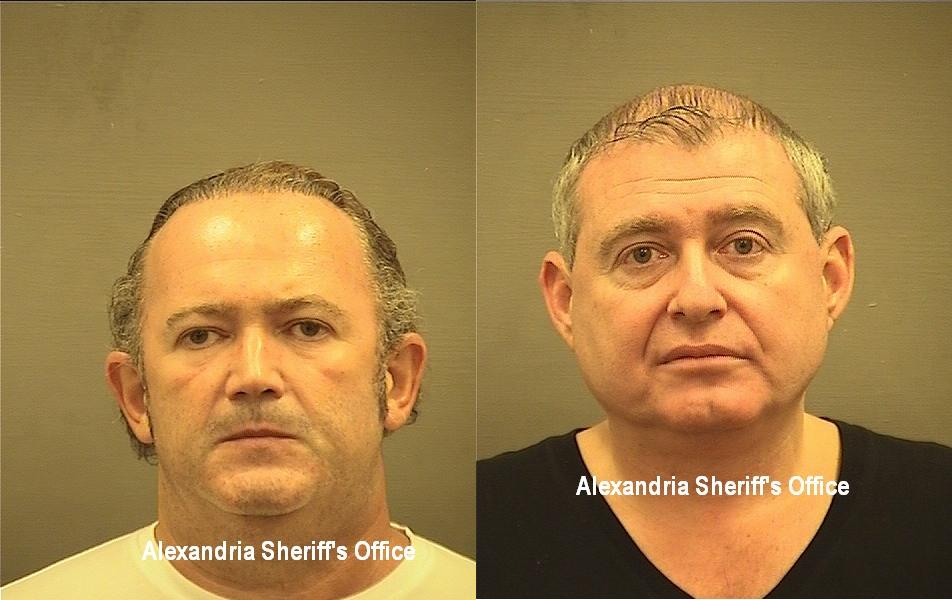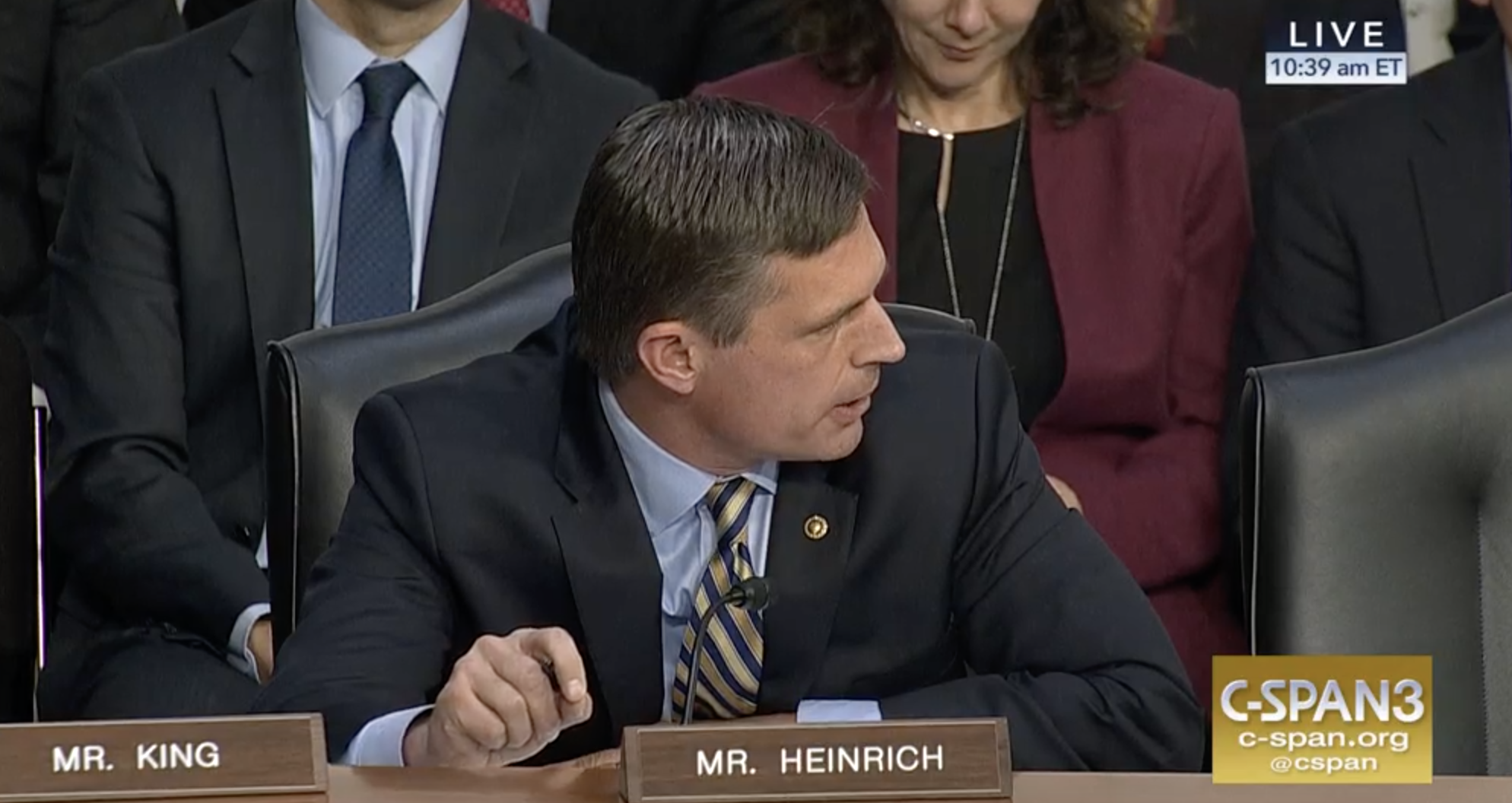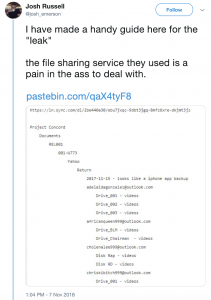The Criminal Investigation into Paul Manafort Was (and May Still be) Ongoing–and Likely Pertains to Trump’s Ukraine Extortion
Robert Mueller was never able to determine whether Paul Manafort entered into a quid pro quo on August 2, 2016, trading — either on his own or with the approval of Trump — promises to help carve up Ukraine to Russia’s liking in exchange for help winning the election.
Mueller never made that determination, in part, because Manafort lied during the period he was purportedly cooperating with the investigation.
Here’s what Mueller did determine was reliable:
First, Manafort and Kilimnik discussed a plan to resolve the ongoing political problems in Ukraine by creating an autonomous republic in its more industrialized eastern region of Donbas,922 and having Yanukovych, the Ukrainian President ousted in 2014, elected to head that republic.923 That plan, Manafort later acknowledged, constituted a “backdoor” means for Russia to control eastern Ukraine.924 Manafort initially said that, if he had not cut off the discussion, Kilimnik would have asked Manafort in the August 2 meeting to convince Trump to come out in favor of the peace plan, and Yanukovych would have expected Manafort to use his connections in Europe and Ukraine to support the plan.925 Manafort also initially told the Office that he had said to Kilimnik that the plan was crazy, that the discussion ended, and that he did not recall Kilimnik asking Manafort to reconsider the plan after their August 2 meeting.926 Manafort said [redacted] that he reacted negatively to Yanukovych sending-years later-an “urgent” request when Yanukovych needed him.927 When confronted with an email written by Kilimnik on or about December 8, 2016, however, Manafort acknowledged Kilimnik raised the peace plan again in that email.928 Manafort ultimately acknowledged Kilimnik also raised the peace plan in January 2017 meetings with Manafort [redacted — pertains to him admitting continuation of the plan into 2018] 929
Second, Manafort briefed Kilimnik on the state of the Trump Campaign and Manafort’s plan to win the election.930 That briefing encompassed the Campaign’s messaging and its internal polling data. According to Gates, it also included discussion of “battleground” states, which Manafort identified as Michigan, Wisconsin, Pennsylvania, and Minnesota.931 Manafort did not refer explicitly to “battleground” states in his telling of the August 2 discussion, [redacted]
Third, according to Gates and what Kilimnik told Patten, Manafort and Kilimnik discussed two sets of financial disputes related to Mana fort’s previous work in the region. Those consisted of the unresolved Deripaska lawsuit and the funds that the Opposition Bloc owed to Manafort for his political consulting work and how Manafort might be able to obtain payment.933
922 The Luhansk and Donetsk People’s Republics, which are located in the Donbas region of Ukraine, declared themselves independent in response to the popular unrest in 2014 that removed President Yanukovych from power. Pro-Russian Ukrainian militia forces, with backing from the Russian military, have occupied the region since 2014. Under the Yanukovych-backed plan, Russia would assist in withdrawing the military, and Donbas would become an autonomous region within Ukraine with its own
Although Mueller included this significant summary of the issue in his Report (and a description of how Rick Gates kept sending polling data to Konstantin Kilimnik, to be shared with Ukrainian oligarchs and Oleg Deripaska’s GRU-linked aide, Viktor Boyarkin), the government nevertheless refused to release the details regarding this dispute that were laid out in court filings and exhibits regarding his breach of his plea deal when WaPo tried to liberate them starting in March. The government explained that, “a number of matters [related to his lies that were referred] to other offices in the Department of Justice … remain ongoing,” and asked for any further matters in WaPo’s challenge be deferred until six months later, which happens to be Tuesday. Judge Amy Berman Jackson never ruled differently, so that’s where things have stood, at least on the public docket, since April, shortly after the Mueller Report was released.
That’s interesting because the government accused Manafort of lying about five different topics. Some are definitely related to each other, and some (as well as his underlying guilty verdicts) are also definitely related to recent events relating to Ukraine and Russia. Which is why it’s worth looking back to learn what Manafort worked hardest to obscure in September and October 2018. Doing so suggests that Trump’s Ukraine call — including the demand for election help and Volodymyr Zelensky implementation of the Steinmeier Formula since — may simply be one step in paying off his campaign debts from 2016. As such, Rudy Giuliani’s involvement with Lev Parnas and Igor Fruman may just be the continuation of what Manafort was pursuing — also being paid by a cut-out system — even after he got sent to jail.
In this post, I’ll look specifically at how the lies Manafort told do and may relate to current events. In a follow-up, I hope to show how the issues for which he was prosecuted also relate to current events, well beyond Trump’s efforts to undermine Manafort’s prosecution to make a pardon easier. Taken together, such analysis will show that the Ukraine scandal is completely inseparable from the Russia one.
Manafort told five lies
Altogether, the government tried to hold Manafort accountable for five lies. Those were:
- How he got paid using a kick-back system involving a SuperPAC, Rebuilding America Now, which (on top of violating prohibitions on coordination with the campaign) may have accepted funds from foreigners. Mueller’s team never seemed to figure out how that scheme worked, in part because Manafort never settled on an explanation for the kickbacks. ABJ ruled that Manafort lied about this.
- Whether he tried to dissociate Konstantin Kilimnik from his own witness tampering to hide the true role of the Hapsburg Group, some former European leaders Manafort used to lobby for Viktor Yanukovych’s party. Effectively, the government accused Manafort of trying to suggest that Kilimnik wasn’t willfully part of what he was doing during a period that spanned from February (when the actual witness tampering happened) through April 2018 (when Manafort tried to tamper again). ABJ agreed in principle that Manafort had lied about this, but ruled the government did not present a preponderance of the evidence, so didn’t count this against him in sentencing.
- Whether he lied to adapt his story to a more exonerating one being told by a Trump flunkie — it’s not clear who — involved in doing something — it’s not clear what — to save Trump’s campaign in the last days during which Manafort managed the campaign. ABJ agreed he had.
- What the fuck he was doing on August 2, 2016, and (though this is always unstated) whether his lies to hide repeated discussions to support a Ukrainian “peace” plan between then and April 2018 were an attempt to hide an effort to pay off a quid pro quo tied to assistance winning the election.
- Whether Manafort spoke to the Administration after inauguration, either directly or indirectly. ABJ ruled that the government had not provided evidence that Manafort lied about his ongoing communications with the Administration.
Of these lies, the lies about another investigation (lie 3 above) seem to be unrelated to the rest. That’s because they involved, well before the Mueller investigation finished, another part of DOJ, and so almost certainly have nothing to do with Russia or Ukraine. Unsurprisingly, the Trump campaign may have been willing to cheat multiple ways to win the 2016 electionm.
The kickback system (lie 1 above) may or many not relate to the Russian and Ukraine questions. Mueller was never able to sort it out, so it’s not clear what to make of it. For my purposes, however, it’s relevant that Manafort’s claims of working for “free” may turn out to be false. Instead, Paul Manafort — who pled guilty a year ago to laundering money and refusing to register to hide how his influence campaigns in the US were being paid for by Ukrainian oligarchs — may have been paid to run Trump’s campaign by foreigners laundering those payments via various means. That’s significant because, last week, DOJ accused Lev Parnas and Igor Fruman of laundering money (from sources Russian, Ukrainian, and unknown) through various front companies, including one called Global Energy Production apparently created for the function, to engage in influence campaigns relating to Ukraine, effectively the same kind of scheme that Manafort engaged in for years. Particularly given that Rudy claims to be both working for and employing Lev Parnas and Igor Fruman, it raises questions about whether his claims to be working for “free” are also bogus, just a lie to hide how the cut through works.
Kilimnik and Manafort’s efforts to push a Ukraine “peace” plan overlap with their witness tampering
Lies 2 and 4 are obviously related, because Konstantin Kilimnik — as Manafort’s tie to several Ukrainian oligarchs and Oleg Deripaska — is at the center of both of them. Manafort’s efforts to deny that Kiliminik was his co-conspirator may have been motivated by nothing more than a need to permit Kevin Downing to claim, falsely, that Manafort’s guilty plea affirmed no “collusion” between the President’s campaign manager and any Russians had occurred. Not only did ABJ affirmatively state that, whatever Kilimnik’s ties to GRU, his role did amount to a link to Russia.
So Manafort was both trying to lie that he had pled guilty to entering a conspiracy with a Russian suspected of ties to GRU, but he was lying to hide precisely what the nature of any conspiracy that may have tied assistance with the 2016 election to help implementing a Ukraine “peace” plan favored by Russia and Russian-aligned Ukrainian oligarchs.
Still, even within that context, there are details of the two Kilimnik lies that deserve more attention. Consider how the timeline of the two sets of lies intersect in 2018, months after Manafort was first charged, in the weeks and months after Trump had reportedly told allies that he was sure he would survive the Mueller investigation because Manafort would not flip on him.
In the weeks after that claim was published, from February 5 through 10, 2018, Manafort was still trying to deliver on his “New initiative for Peace” (PDF 82).
Later in February, after Mueller unveiled Rick Gates’ cooperation and made it clear he was pursuing another of the vehicles Manafort used to hide his influence operations, the Hapsburg Group, he and Kilimnik reached out to key players in that influence operation (who, unbeknownst to Manafort, had already been cooperating for some time) in an attempt to get them to lie about the influence operation. Those contacts, over Telegram and WhatsApp, took place between February 24 and 28.
But knowing that another part of his past influence operation was under scrutiny still didn’t dissuade Manafort from pursuing that “peace” plan Kilimnik first pitched him on August 2, 2016, amid a discussion of how to get Trump elected. On March 9, he was sending some unnamed person related documents from Kilimnik. (PDF 92ff) The breach hearing and other documents make it clear this was an effort to test the viability of a Ukrainian candidate, including his willingness to implement the “peace” plan.
He was doing it again on March 26. (PDF 97)
Manafort would try to dissociate this polling from the people who were really implementing, including, apparently, trying to pretend that Kilimnik didn’t know about it.
Then — included in the contacts that (the government says) were part of Manafort’s conspiracy to obstruct with Kilimnik, though it’s not clear how — there were more contacts with the Hapsburg Group flacks on April 4.
In fact, Manafort’s efforts to pursue this “peace” plan continued even further, with him hoping that some unnamed person would find documents valuable on May 4. (PDF 95)
There’s a lot more sealed evidence about how relentlessly Manafort pursued a Ukrainian “peace” plan between August 2, 2016 and at least the time he was jailed for bail violations in June 2018 (though remember, the government alleges he continued to communicate in incriminating ways even from jail, via laptops carried by his attorneys). Altogether, there are 38 exhibits documenting Manafort’s false denials of his actions on that front. Because the government says it has (or had) an ongoing investigation into such matters, we don’t get to see what the exhibits are. But Manafort’s lawyer, Kevin Downing (who filled in at Parnas and Fruman’s bail hearing the other day) has seen them. And Downing, reportedly, was sharing details of Manafort’s cooperation with other lawyers in Manafort’s Joint Defense Agreement with the President, including Rudy Giuliani.
Trump “hired” his “free” defense attorney Rudy Giuliani on April 19, 2018, after current Parnas and Fruman attorney John Dowd quit. And once Manafort could no longer pursue his Ukraine “peace” plan, Rudy got involved in efforts to press for certain concessions in Ukraine.
Manafort’s attempts to communicate with the Administration (excepting via counsel)
Finally, there’s the last alleged lie, the one ABJ said prosecutors did not prove.
It’s not really clear what prosecutors believed Manafort was communicating about, beyond hires (like Steve Calk) in the Administration, because the topic of interest (which in some redactions appears to be too short to refer to Ukraine or Russia) is redacted in the documents released. They only submitted six exhibits to substantiate their claim. But the two unredacted exhibits presented in support of their case are notable.
UPDATE, 5/26/21: The further unsealing of these documents have revealed that they pertain to lobbying Department of Labor about ERISA, and so are probably totally unrelated.
On May 15, Manafort drew up a document that (the government’s declaration makes clear) included a section titled “Targets,” along with notes indicating Manafort would reach out to people about those targets. (PDF 152)
It might be a coincidence, but Manafort draws up this document right at the beginning of Parnas and Fruman’s efforts to donate big money to key Republicans through their shell company.
And on May 25, someone asked Manafort via WhatsApp whether it was cool to invoke his name if he or she met with Trump the following week, one-on-one. (PDF 156)
In the breach hearing, ABJ summarizes this:
You say that what he said was false because he did in fact agree to have messages sent to the administration on his behalf. And you point to evidence in which he offered to have other people contact the [redacted] on behalf of Mr. [redacted], for example, or to press buttons. But that outreach appears to have been two people outside the administration who themselves would have contacts within. There is some evidence that Mr. Gates said that Mr. Manafort said he still had connections, and that another individual asked Mr. Manafort if he, that individual, could tell [redacted (the President)] he was still close to Manafort.
And you have his involvement in lobbing with respect to [redacted], and Exhibit 404 is this memo summarizing the group’s plan that say, somewhat ambiguously, [redacted] will find out if [redacted] did her bit and get her to call [redacted] And it’s not even crystal clear that he was supposed do that by calling her.
In explaining the lie, Greg Andres makes it clear that Manafort was also representing in March that he had the ability to send messages to someone (probably Trump) in the Administration.
Significantly, Manafort lawyer Richard Westling dismisses that anyone would value Manafort’s advice or support at a time when he was already under indictment.
he was already under indictment at this point and, you know, the idea that he was going to pass a message and it would have some value, frankly, no offense to Mr. Manafort, but I can’t see that.
It’s notable that Downing did not make that claim because — as recent reports make clear — Rudy continued to consult Manafort on these Ukraine issues even after he went to prison, through Downing.
Especially since, in all its representations about these ongoing communications, the government makes clear,
for the purposes of proving the falsity of Manafort’s assertions in this section, the government is not relying on communications that may have taken place, with Manafort’s consent, through his legal counsel. We previously so advised the defense.
It’s clear the government knew Manafort continued to communicate with Trump via Downing and Rudy; they just weren’t going to reveal that they had pierced privilege or what they had learned.
The Ukrainian grifters timeline
Now consider how the timelines of Manafort’s relentless pursuit of a “peace” deal, his witness tampering with Kilimnik, and his efforts to communicate with Trump overlap with the known timeline of the Ukrainian grifters (I’ll continue to update this). It suggests that Parnas and Fruman kicked in their influence operations just as Manafort’s legal problems made him unable to do so.
February 5-10, 2018: Manafort working on “a new Peace initiative”
February 19, 2018: Manafort email pertaining to “peace” plan
February 21, 2018: Manfort emails document pertaining to “peace” plan to undisclosed recipients
February 23, 2018: Mueller reveals Rick Gates’ plea deal
February 24-28, 2018: Kilimnik and Manafort attempt to script testimony of Hapsburg Group flacks
March 2, 2018: Pentagon issues final approval to send Javelin missiles to Ukraine
March 3, 2018: Fruman participates in high donor meeting at Mar-a-Lago
March 9, 2018: Manafort working on polling regarding Ukraine “peace” plan for potential client
March 26, 2018: Manafort working on Ukraine “peace” plan
April 4, 2018: Kilimnik again attempts to witness tamper with Hapsburg Group flacks
Early April, 2018: Reported halt to Ukraine’s cooperation with Mueller
April 11, 2018: Parnas and Fruman form Global Energy Producers
April 19, 2018: Trump “hires” “free” defense attorney Rudy Giuliani
April 29, 2018: Someone first solicits help creating a website for GEP
May 2, 2018: NYT reports that Ukraine has stopped cooperating with Mueller probe
May 4, 2018: Manafort sends unnamed person information on Ukraine plan
May 8, 2018: Parnas and Fruman meet with Trump and seven other people “about preparations for victory in the midterm elections;” Fruman raises “America’s support for Israel and Ukraine,” topics about which “Trump … was absolutely positive”
May 15, 2018: Real estate lawyer Russell Jacobs deposits $1.26 million pass through funds into Aaron Investments LLC
May 15, 2018: Manafort document lists “Targets” and reflects commitment on his part to reach out about them.
May 17, 2018: Parnas LLC Aaron Investments donates $325,000 to Trump PAC, America First Action in the name of GEP
May 21, 2018: Parnas has breakfast with Don Jr and Tommy Hicks Jr, head of America First
May 24, 2018: Someone again solicits help creating a website for GEP
June 8, 2018: Manafort charged with witness tampering; prosecutors move to revoke bail
June 21, 2018: GEP donates $50K to Ron DeSantis
September 14, 2018: Manafort enters into what would be a failed plea agreement, admitting he laundered money and influence on behalf of Ukrainian oligarchs, but entering into a five week process of learning what prosecutors know
Mid-to-late 2018: Rudy referred to Parnas and Fruman for work with “Fraud Guarantee”
Around November 2018: Rudy starts working for Parnas and Fruman
Late 2018: While Parnas and Rudy were eating together, “someone” approached Rudy and gave him information about Ukraine
January 8, 2019: Manafort lawyer’s redaction fail reveals that Manafort was asked about the Ukraine “peace” plan and that Manafort was lying about whether it got raised while working on the campaign and also that he was being asked about ongoing contacts with the Administration
Background
I have laid out the structure of Manafort’s lies in these posts:
- It’s Not So Much that Manafort Lied and Lied and Lied, It’s that His Truth Evolved (January 23)
- A Primer on How to Read: So the NYT Can Stop Telling Paul Manafort’s Lies (February 11)
- The Unseen Aspects of Paul Manafort’s Lies and Truth-Telling Are as Telling as the Ones We’ve Seen (February 14)
The primary sources for them are these documents:
- December 7: Initial Government submission in support of breach determination
- January 8: Manafort redaction fail response
- January 15: Government’s declaration in support of breach determination with exhibits
- January 23: Manafort reply to SCO declaration
- February 4: Breach hearing
- February 13: Breach judgement ruling
- February 13: Breach judgement hearing
- February 27: Government notice of Gates’ clarification and nationalities of oligarchs
- April 17: Ruling denying reconsideration in light of exonerating testimony from Gates

